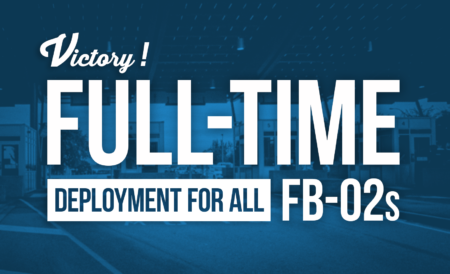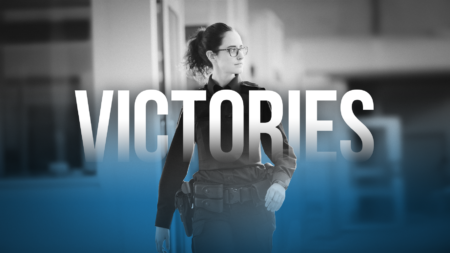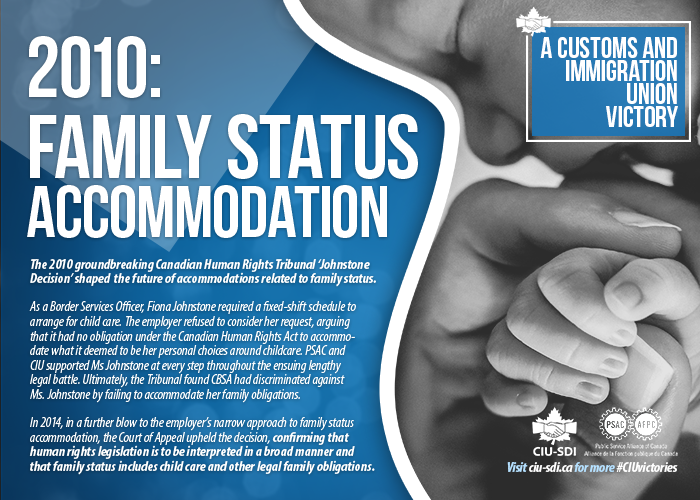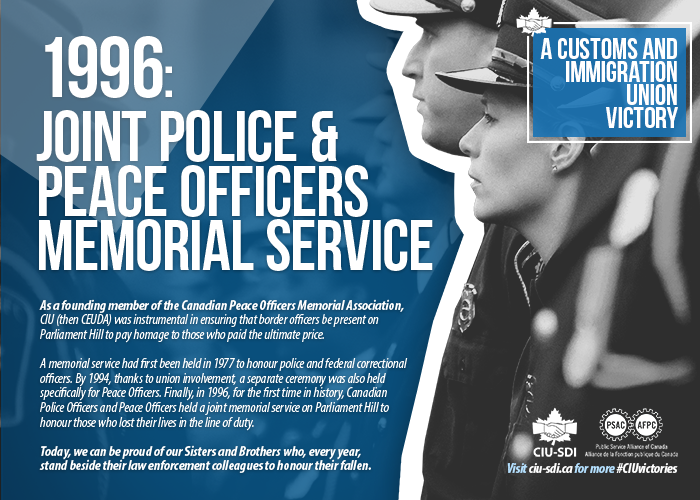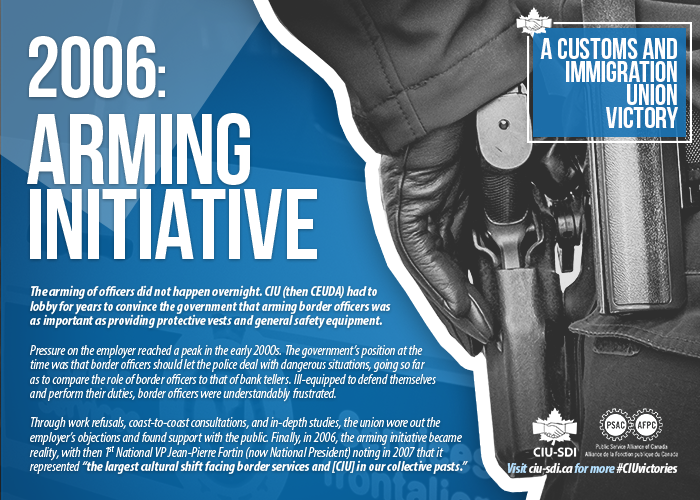A few months ago, CIU became aware of a troublesome CBSA initiative regarding the hiring of part-time FB-02s. This practice effectively created a two-tier system within the Officer Induction Model: Part-time BSOs faced a longer assessment period before being promoted to FB-03 and, once promoted, had no guarantee of full-time employment.
Since then, CIU’s 3rd National VP, Joey Dunphy, has brought this matter to several meetings with CBSA executives, while also raising the issue at the Labour Management Executive Committee, the National Labour Management Consultation Committee and at the Bargaining Table.
Another victory for our members
Brother Dunphy’s steadfast advocacy on this question paid off: As of August 1, 2019, all part-time FB-02s are now deployed into full-time indeterminate positions at their respective Port of Entry. We can be proud of this victory for our members and the union!



